What are “comfort measures”?
Comfort measures may ease labor pain directly or indirectly by soothing and relaxing you. Here are some examples:
- Create a calm environment: Dim lights, peaceful surroundings, soft music, privacy and warmth.
- Increase physical comfort: Walking, slow dancing with a partner, pelvic rocking, positioning pillows for comfort, sitting and swaying on birth ball (a large physiotherapy ball), lifting up the abdomen and/or rocking in a rocking chair.

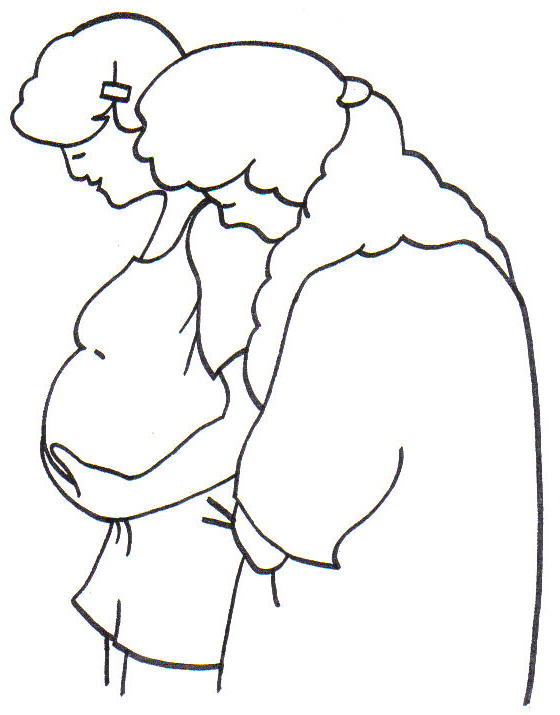
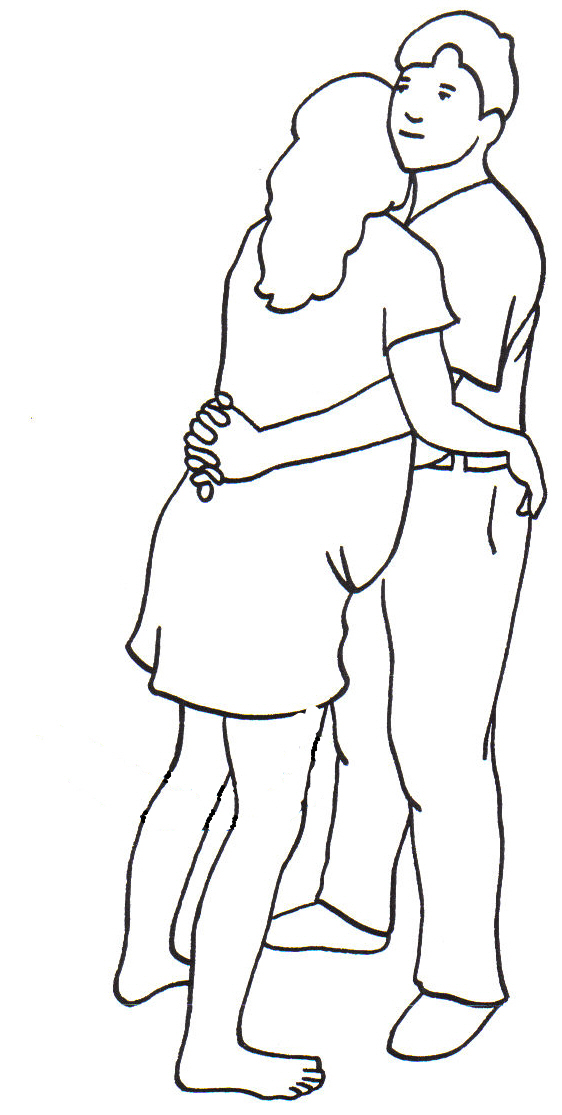
Walking with a partner Walking with a doula Slow dancing 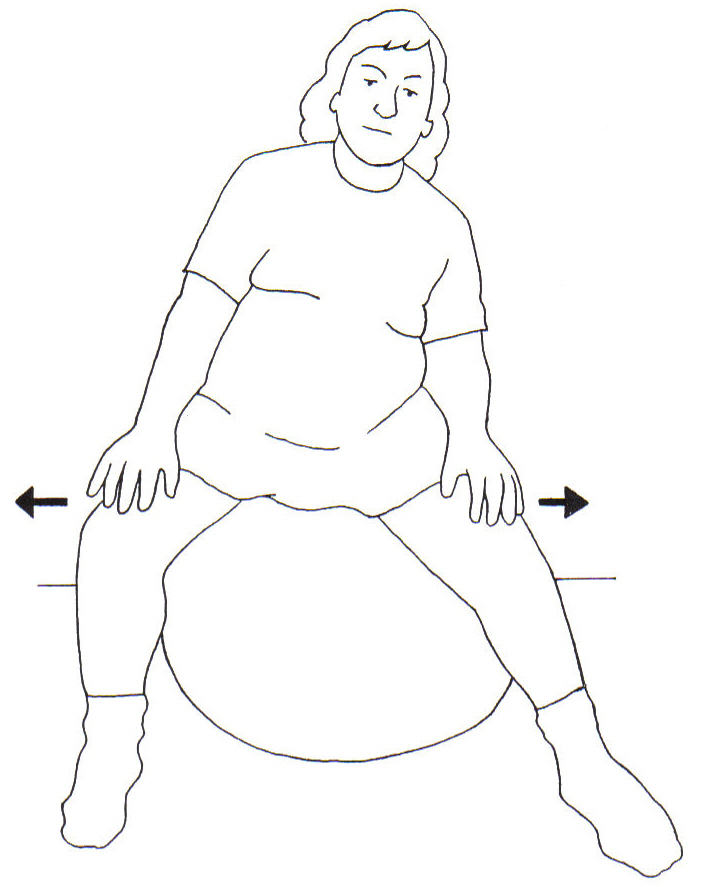
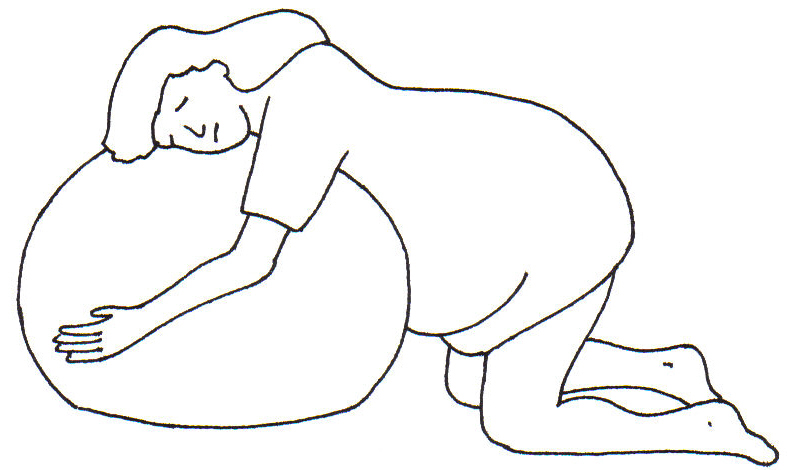
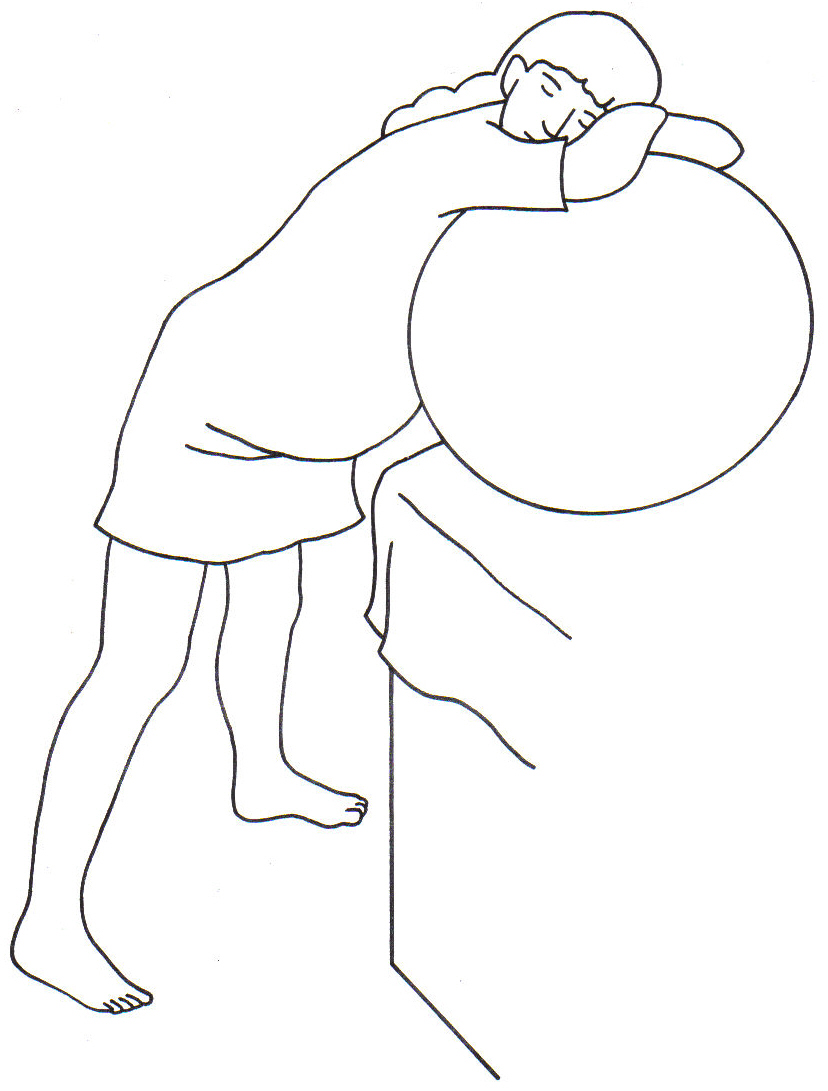
Rocking on a birth ball Kneeling and resting on a birth ball Standing and resting on a birth ball 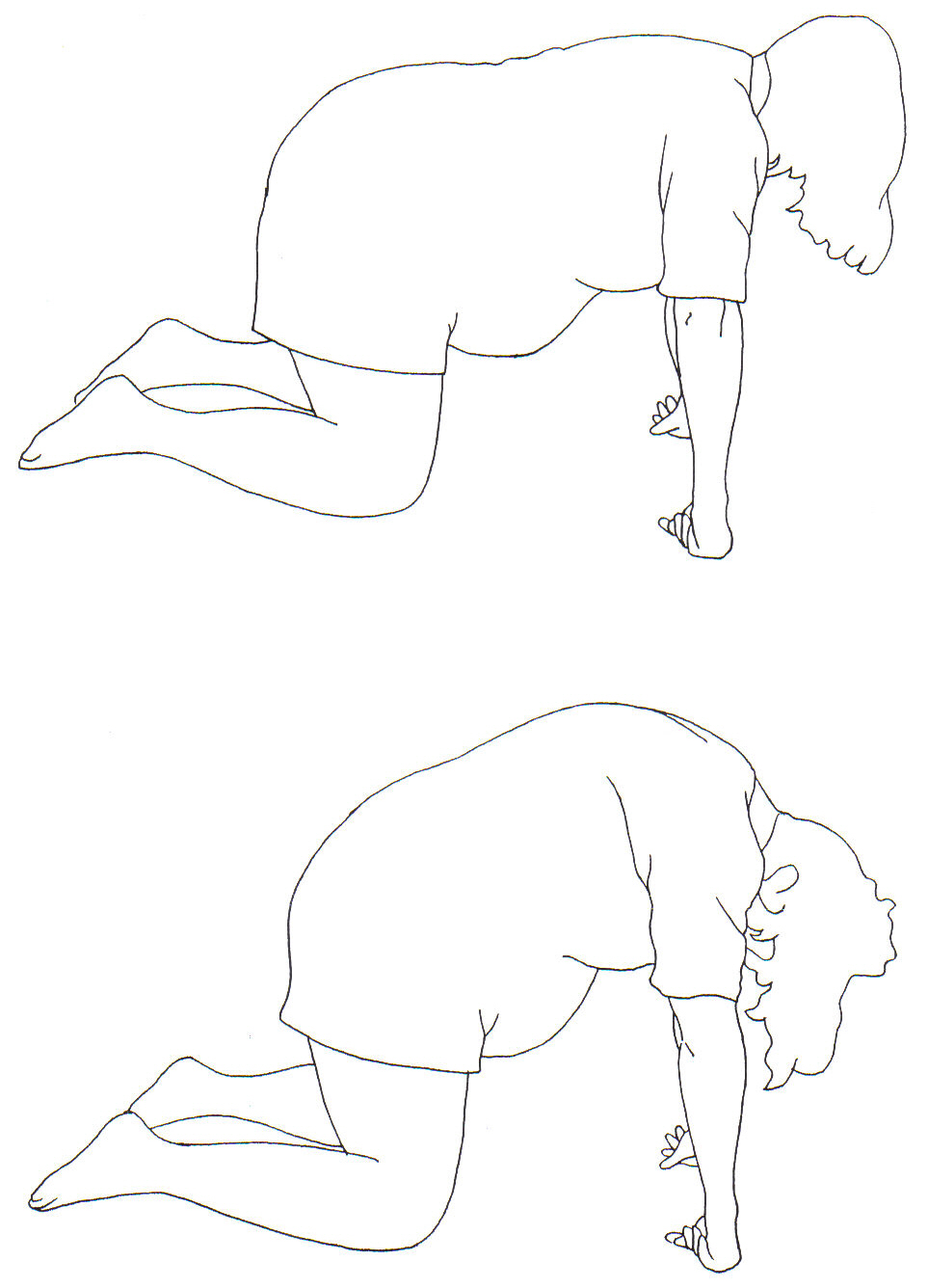
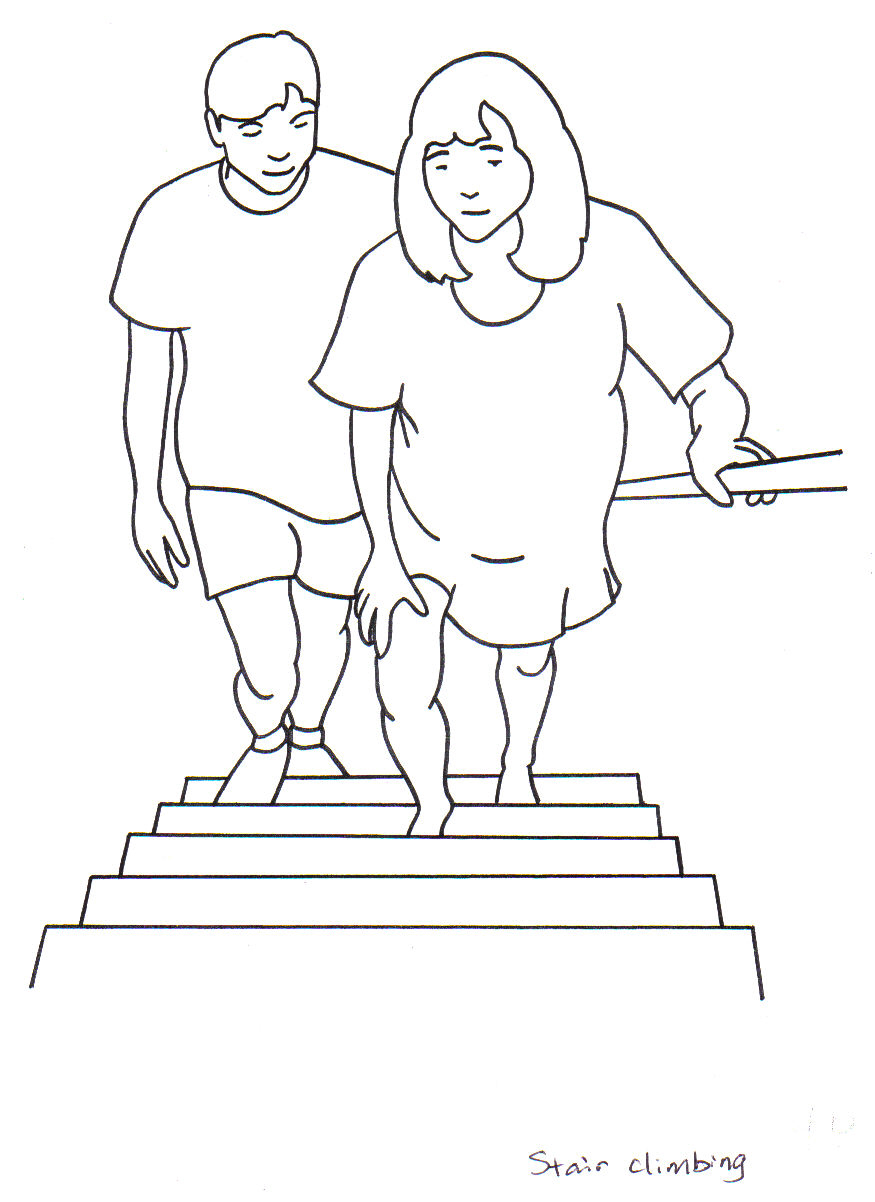
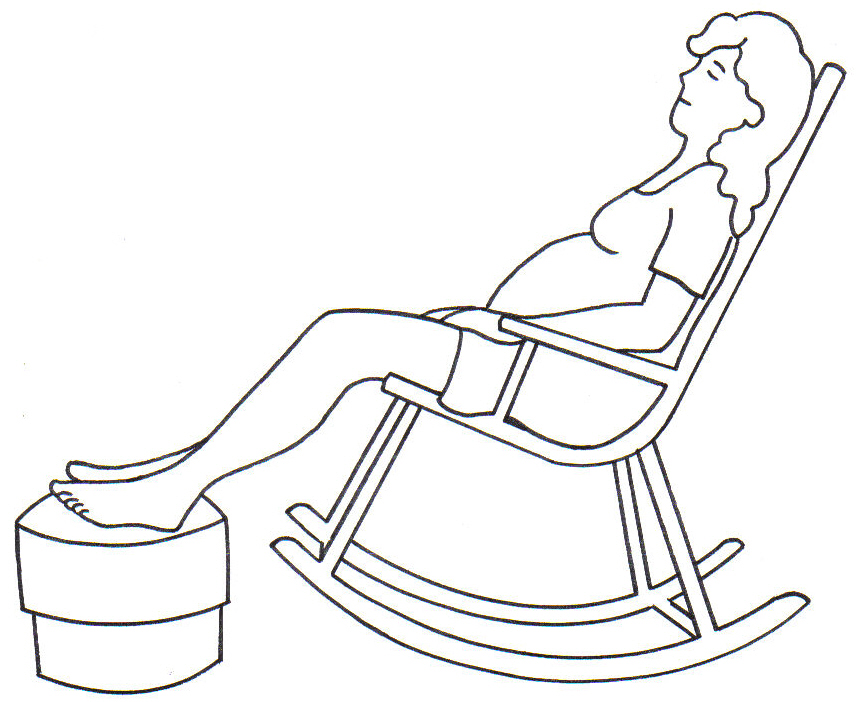
Doing pelvic tilts Climbing stairs Rocking in a rocking chair - Use touch: Massage, stroking, cuddling, counter pressure against the lower back or acupressure.
- Apply heat (with or without water): Deep tub bath, shower, heating pad on groin or back, heated blanket.
- Apply cold: Ice pack on lower back, cool cloth to wipe face.
What will I need if I want to use comfort measures?
Comfort measures may require nothing more than adjusting the lighting or a pair of willing hands to rub your back. Or they may require a temperature-controlled tub big enough to move around in. Many items are low-cost and you can buy them and bring them with you (massage oil, massage tools or frozen gel packs). Or you can make things at the hospital: make a cold pack by putting ice chips in an exam glove and tying a knot. If you hire a doula, she will know many comfort measures and usually bring items with her to help.
What are the pros and cons of using comfort measures?
Pros:
- Offer lots of possibilities for relieving labor pain.
- Can be combined with each other and with other techniques to suit your needs.
- Usually don’t require much planning time; if you decide to use a comfort measure, you can pretty much do it right away.
- Don’t interfere with the labor progress and often may help it along.
- Help you feel a sense of accomplishment and confidence, which can help relieve pain.
- Won’t make you unconscious, unstable or groggy.
- Can help you delay or avoid labor pain medications and their possible adverse effects.
- Unlike epidural and narcotic pain medications, you can stop comfort measures at any point.
Cons:
- May not provide enough pain relief.
- May require equipment that is not available or too expensive.


